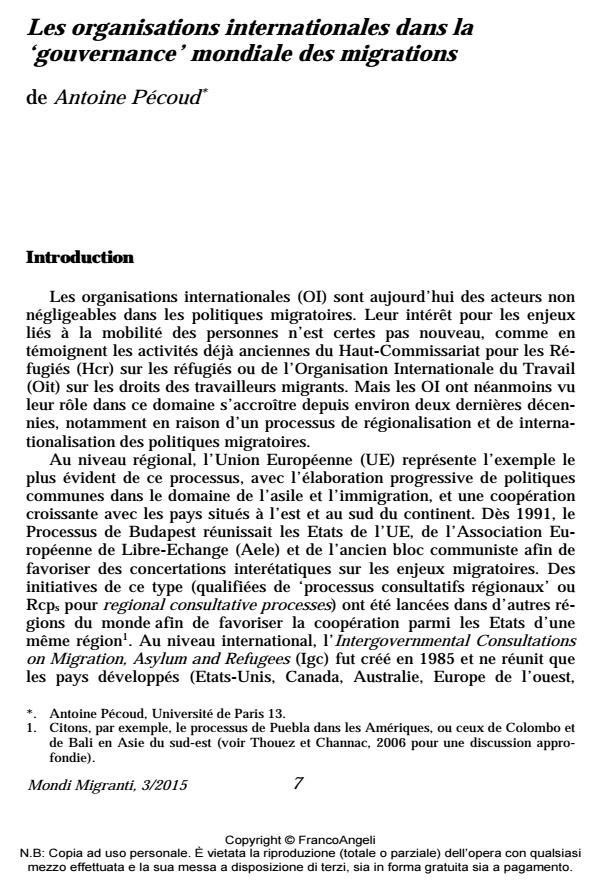International organisations the "global governance" of migration
Journal title MONDI MIGRANTI
Author/s Antoine Pécoud
Publishing Year 2016 Issue 2015/3
Language French Pages 24 P. 7-30 File size 115 KB
DOI 10.3280/MM2015-003001
DOI is like a bar code for intellectual property: to have more infomation
click here
Below, you can see the article first page
If you want to buy this article in PDF format, you can do it, following the instructions to buy download credits

FrancoAngeli is member of Publishers International Linking Association, Inc (PILA), a not-for-profit association which run the CrossRef service enabling links to and from online scholarly content.
The last two decades have seen major shifts in the way international organisations (IOs) address migration. While state sovereignty remains central in the politics of migration, IOs are increasingly developing their visions regarding how the cross-border movements of people should be governed (or ‘managed’) and, in some cases, they have become important actors in the design and implementation of migration policy. Research on the role and functions of IOs remains scarce, however, and there are major uncertainties, concerning not only their actual influence, but also the political context in which they operate and the outcome of their initiatives. According to their advocates, the involvement of IOs would enable greater international cooperation, which would lead to policies that pay greater attention to human rights and development imperatives. Yet, at times interventions by IOs seem to reinforce existing imbalances, as these organisations primarily tend to align themselves with the interests and agenda of developed receiving states. This points to both the high degree of autonomy of IOs and to the extent to which their policy discourses reflect or guide their actual interventions. In addition, the work of IOs is embedded in a complex institutional setting, characterised by sometimes-problematic institutional relations between them, as well as between IOs and other international cooperation mechanisms.
Keywords: Migration Policy, Global migration governance, International Organisations
- La fabrique de la politique migratoire sénégalaise Marie-Dominique Aguillon, in Anthropologie & développement /2020 pp.51
DOI: 10.4000/anthropodev.957
Antoine Pécoud, Les organisations internationales dans la "gouvernance" mondiale des migrations in "MONDI MIGRANTI" 3/2015, pp 7-30, DOI: 10.3280/MM2015-003001